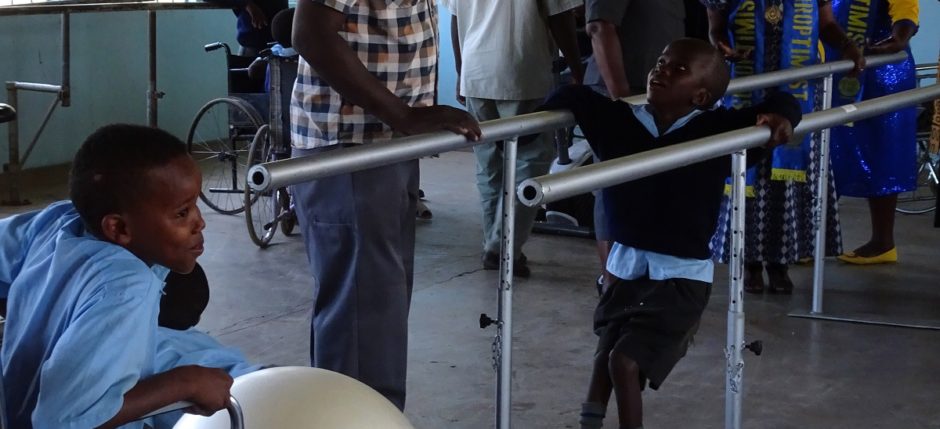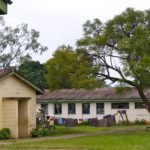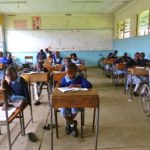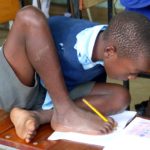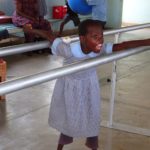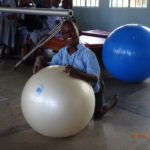A renovated physiotherapy department for Joyland in Kisumu
The children and young grown-ups of the Joyland were so enthusiastic when joining the opening of the renovated physiotherapy-department in “their home”.
Physiotherapy offers them regular treatment and abilities to train their body in gaining more physical independency from others.
Sam Owino – the general manager of Joyland himself is supported by a pair of crutches. He is doing more than anyone who knew him as an infant would have thought possible. He was born with disabilities and faced many obstacles. Most people with a physical handicap are forced to survive by begging in the streets.
Joyland was founded in 1974 as a rehabilitation center and school by The Salvation Army in Kisumu. Joyland is comprised of two schools: The primary school covers grades 1-8, while the secondary school, which opened in 1994, rounds out the pre-university education. Joyland offers vocational courses as well where students are taught life skills including tailoring, and farming programs. If young people pass their primary school exam, they can go on to secondary school and some can go to university. If not, they are channeled into vocational education to learn trade skills that will support them in the future.
Because many students come from homes far from the schools, almost all students live on site in dormitories. A total of 250 students live, eat, study and work together. The schools serve students with a variety of needs, including those with muscular dystrophy, cerebral palsy, mental illness, spina bifida, epilepsy and those who have been injured. Those with multiple disabilities find support and fellowship at Joyland. Each child is assessed upon admission and given specific treatment goals with options outlined for their needs and potential.
The students’ needs go beyond their visible, physical disabilities. Most have suffered emotional and psychological trauma, often as a direct result of their physical condition. Joyland offers the children a safe home where they learn how to earn a living when they have left the house. Not necessary to say that not all children are succesfull at the end.
The physical plant is generally in good condition, but closer inspection uncovers glaring needs. A room for rehabilitation is nearly bare because the equipment is either in disrepair or unavailable. Dormitories are badly overcrowded. Due to the lack of walkways, the rainy season is a hardship. Many students have to drag themselves along the ground to get from place to place.
Despite the obstacles, remarkable work is being done by staff and students. At regional competitions held recently in Kenya, the students came out on top in para-volleyball, athletic field events and board games and were also awarded the overall trophy as the best region in sports. Many of the students have gone on to successful careers, disproving the prejudices many still hold regarding the disabled.

